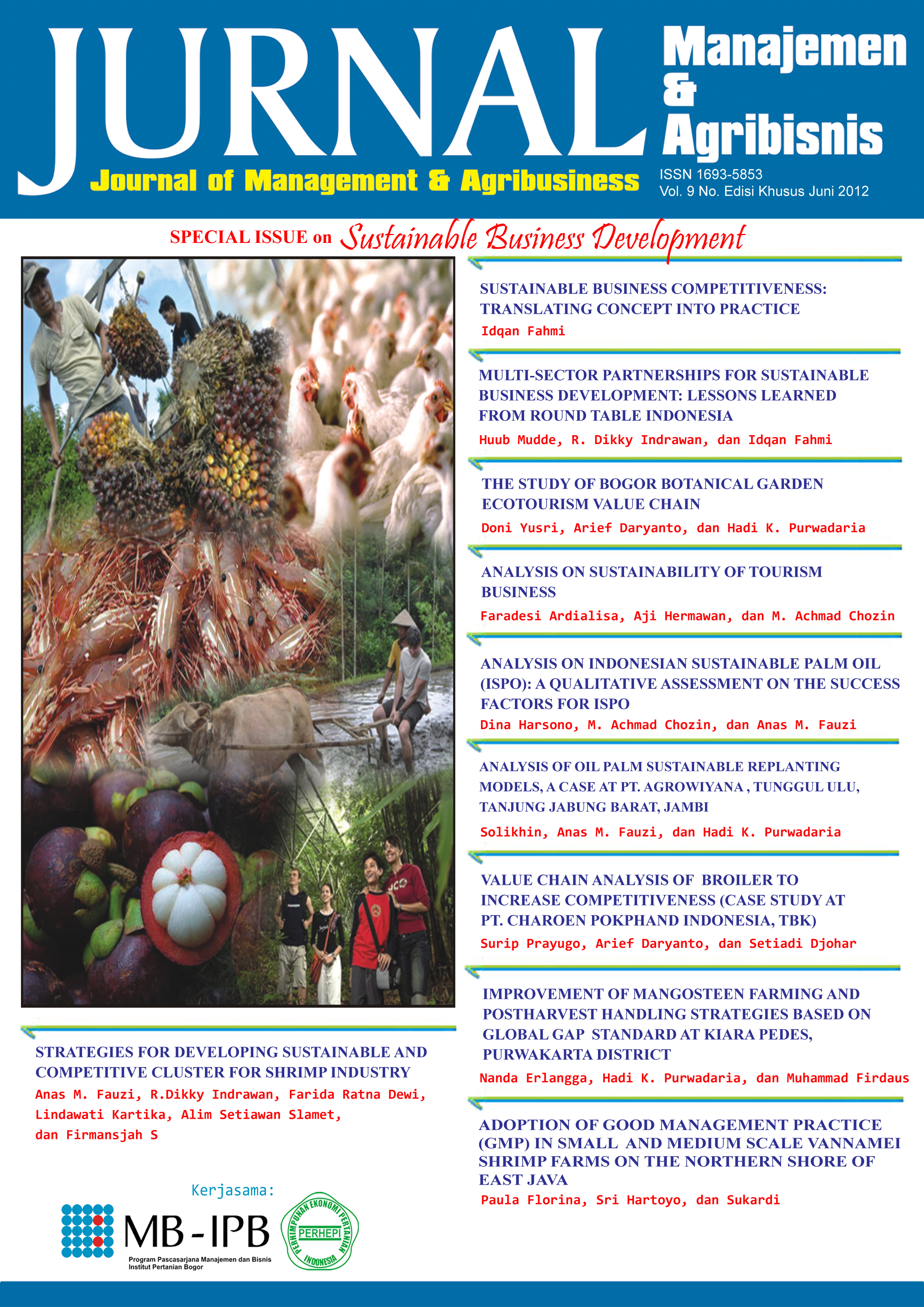ADOPTION OF GOOD MANAGEMENT PRACTICE (GMP) IN SMALL AND MEDIUM SCALE VANNAMEI SHRIMP FARMS ON THE NORTHERN SHORE EAST JAVA
Abstract
The objectives of this research were to describe the value chain of Vannamei shrimp industry on the northern shore of East Java, to identify the current management practice that is being implemented by small to medium scale shrimp farmers, to analyze the level of adoption of Good Management Practice by small to medium scale shrimp farmers and to identify the challenges that prevent small to medium scale farmers from adopting Good Management Practice. This research utilized descriptive qualitative method using multiple-case study. Data collection was conducted through interviews with experts and various actors in shrimp industry and interviews and observations in shrimp farms. From this research it can be concluded that the farming activity gives the largest contribution in final product value, that the current management practice in observed intensive Vannamei shrimp farms is in line with recommendations of various institutions with the exception of waste management, that the observed intensive Vannamei shrimp farms have high adoption level of Good Management Practice (GMP) for various stages of shrimp farming activity with the exception of waste management, and that there is a tendency that farmers follow the good practices that have direct impact to the success of the production, and that the main challenges of GMP adoption are the lack of a comprehensive GMP manual, the lack of structured technology dissemination, and the lack of incentive for the farmers to adopt waste management practices.
Keywords: Litopenaeus Vannamei, Shrimp Farm, Good Management Practice, Value Chain, Multiple-Case Study
Authors
Authors who publish with this journal agree to the following terms:
- Authors retain copyright and grant the journal right of first publication with the work simultaneously licensed under a Creative Commons Attribution License that allows others to share the work with an acknowledgement of the work's authorship and initial publication in this journal.
- Authors are able to enter into separate, additional contractual arrangements for the non-exclusive distribution of the journal's published version of the work (e.g., post it to an institutional repository or publish it in a book), with an acknowledgement of its initial publication in this journal.
- Authors are permitted and encouraged to post their work online (e.g., in institutional repositories or on their website) prior to and during the submission process, as it can lead to productive exchanges, as well as earlier and greater citation of published work (See The Effect of Open Access).

